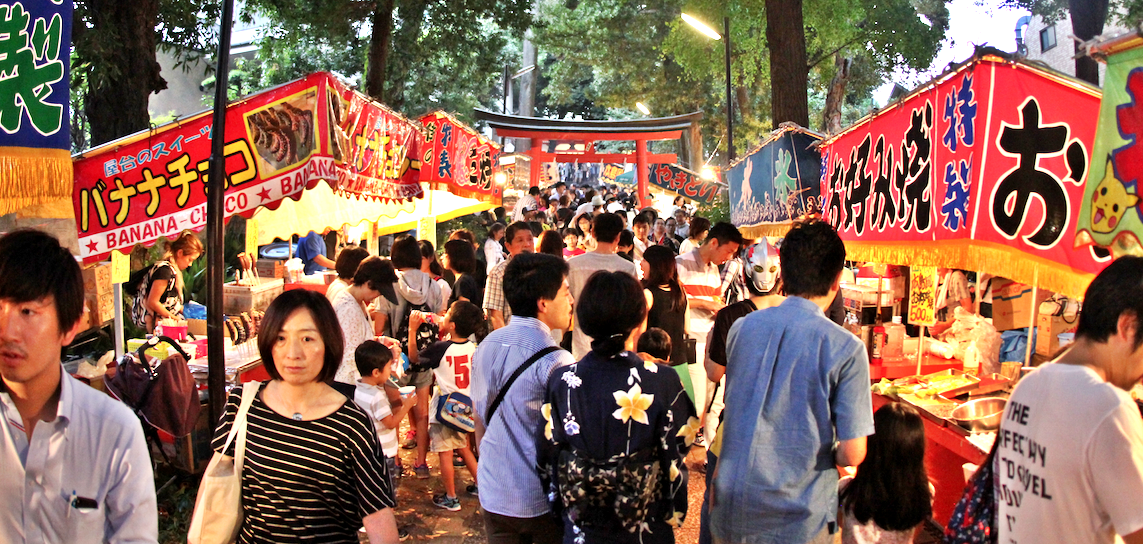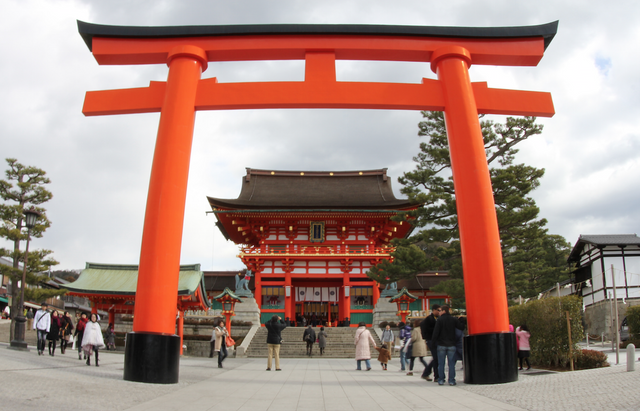
Wanna know the biggest problem driving Japanese students absolutely nuts?
I should know, I keep getting emails on the topic.
And I used to have the same problem.
Here's what I mean:
"I've learned lots of Japanese grammar, vocabulary and kanji but I can't seem to put it together to form sentences or hold even a simple conversation. How on earth do you get fluent in Japanese?
Yours frustrated,
Luke"
Well, I can definitely answer that. I'm Alex, the creator of Learn Japanese Pod, a website and podcast that helps people to speak Japanese fluently. I've lived in Japan for over 20 years and have taught hundreds of students how to break out of a rut and really start speaking fluent conversational Japanese.
I did this over the years through trial and a lot of error and eventually figured out the most powerful techniques that actually boost fluency. Not only that, I can tell you all the myths, bogus strategies and dumb mistakes I made so you don't have to.
But before going on I want to be absolutely clear and up front. The secret to speaking fluent Japanese is, there is no secret. If you see courses claiming they have the secret sauce for teaching you fluent Japanese in 5 days, buy a fire extinguisher because someone’s pants are on fire.
It’s going to take you time, commitment and hard work...and coffee...lots of coffee. But the trick is to make the process fun and I can show you how to do that.
So I can’t give you a magic pill, but I can save you a hell of a lot of time showing you how to focus and what not to do.

Tip #1 - What do you really want to do?
The biggest mistake I see new students of Japanese make is not being clear about what they want to achieve.
Before you even open your textbook you need a specific goal to really focus your studies.
So what’s a good goal? If you say “I want to speak kick ass, ninja level Japanese” that's all well and good but it’s too vague and will likely end in frustration and you will eventually give up. Something better would be “I want to be able to say 100 travel related phrases fluently for my trip to Japan in three months”.
Now you know exactly what you need to study, how much you need to study and by when you need to study. Another major benefit of setting a super specific goal is you can avoid studying stuff you don't need to know. That is a massive time saver.
Also, remember to breaking down your goal into small achievable steps will increase your chances of success. So learning 100 phrases in 3 months is a pace of just over 1 phrase a day which is totally achievable.
If you’re still not quite sure what to do, don’t worry, just pick something, anything just to get started. For example, you could attempt to pass the N5 Japanese Language Proficiency Test in 6 months. And even if you fail the test, you’ve improved your Japanese.
Tip #2 - Drill baby drill!
If I could only give you the single most useful piece of advice for improving your Japanese fluency I would say do speaking drills. A drill is simply repeating a phrase out loud over and over again until you can say it easily without thinking.
I first started studying Japanese on my own. I bought this random Japanese conversation textbook, read the dialogs, listened to the audio and repeated every phrase and conversation. I did this obsessively until I could say them automatically. The book wasn’t great and some of the conversations were kind of boring and not even that useful. 田中さんの車はどこの車ですか・トヨタの車です・あ、そうですか - Tanaka san no kuruma wa doko no kurumu desu ka / Toyota no kuruma desu / A sou desu ka - Mr Tanaka, what kind of car is that / It's a Toyota / Oh really?
...Yawn
BUT drilling the dialogs out loud repeatedly really helped me to keep useful sentence structures stuck in my head. I didn’t become fluent overnight but I did notice my progress increase more rapidly.
Another effective technique I discovered was gap fills. A gap fill is drilling a sentence and changing one word every time you repeat it. Here is an example:
日本語を上達するためには勉強が大事だ - Nihongo o joutatsu suru tame ni ha benkyou ga daiji da
To improve your Japanese, studying is important.
日本語を上達するためには読書が大事だ - Nihongo o joutatsu suru tame ni ha dokusho ga daiji da
To improve your Japanese, reading is important
日本語を上達するためにはコーヒーが大事だ - Nihongo o joutatsu suru tame ni ha koohii ga daiji da
To improve your Japanese coffee is important ;)
This is a nice technique for building fluency, increasing your vocabulary and your ability to create your own natural sounding sentences.
Another related technique is shadowing. Shadowing involves playing audio and repeating out loud exactly what you hear. So just listen and repeat. Good conversational Japanese textbooks should include a CD you can use.
If you are wondering what textbooks or materials you should use here are a few recommendations.
Learn Japanese Pod podcasts
Yeah, yeah, I know, shameless self promotion but the whole reason I made our podcast was to teach people how to speak natural, real Japanese you actually hear on the streets in Japan, not the typical textbook stuff."Nihongo Fun and Easy" - A great beginner’s textbook which features natural everyday situational dialogs - It also has a CD so you can practice shadowing
"Genki Japanese I" - This is good for learning the basics of Japanese, building your vocabulary and learning basic grammar.
"Japanese Sentence Patterns for Effective Communication: A Self-Study Course and Reference by Taeko Kamiya"- This is really good for learning high frequency patterns of speech. It doesn’t come with a CD however but it’s a good book to get started in Japanese.

Tip #3 - Paraphrasing
Paraphrasing is the ability to expressing the meaning of something using different words. This is a great technique when you forget or don’t know a word. It’s not an easy skill and requires a fair amount of study. However it is worth it because it is a powerful technique for boosting your fluency.
A good technique is to paraphrase something in three different ways. The first way is to define a Japanese word in Japanese. For example, let’s use the word 暑い - Atsui, which as you probably know means hot. But can you describe what it means in Japanese? You could say 温度の高いもの- Ondo no takai mono, something with a high temperature. To do this yourself, use a good online Japanese dictionary such as the Goo dictionary at dictionary.goo.ne.jp
The second way is to find a synonym, that is another word which has a similar meaning. So you could use the word 熱 - Netsu, which means heat or fever. Or perhaps you can use the word 暖かい - Atatakai, which means warm.
The third way is to find a negative phrase which means 暑い。For example you could say 寒くない - Samukunai, which means not cold.
You don’t have to use all these techniques but being able to define a Japanese word in Japanese is a really powerful skill you should study towards. Again, use a good Japanese dictionary to help you.
There’s a good chapter on paraphrasing in Japanese in the book "13 secrets for speaking fluent Japanese" by Giles Murray.
Tip #4 - Get your ass to Japan and study Japanese intensively
Yeah I said it. So...In my 2nd year of university I came to Japan to study Japanese intensively for a year. That intensive year of study gave me the boost I needed to begin to achieve fluency and real conversational skills. Without that my Japanese wouldn’t be anywhere near as good as it is now. It gave me a focused and structured program of study and the chance to practice my Japanese in real situations with native Japanese speakers. Plus it was one of the most enjoyable times I ever spent in Japan.
Now, they say when studying a language it’s not a sprint but a marathon. However, I would say it’s a marathon interspersed with the occasional sprint. Enrolling in an intensive course speeds up your progress and gives you enough escape velocity to take your Japanese to the next level. You don’t necessarily have to come to Japan for a whole year, but if you can, even a course that runs for a month or a few weeks is good. Plus you’ll have an amazing time guaranteed.
Tip #5 - Get out there and practice with native Japanese speakers.
This is pretty obvious but you absolutely have to practice with native speakers if you want to build real conversational fluency. This is a no-excuse, must-do condition for speaking fluent Japanese. One way to do this is just follow tip #4 and come to Japan to study. However, if you don’t have the time or the budget to come to Japan just yet you could try the following ideas:
- Enrol in a local Japanese class
- Use meetup.com to find a Japanese study group near you
- Attend a Japanese cultural event hosted by institutions such as the Japan Society which is based in New York
- Do online Japanese lessons or group chats. Some free sites you can find Japanese pen pals to practice with are Lang-8.com and wespeke.com To be honest I have never used those sites so I can’t really tell you how good they are but they might be a good place to start.
So those are our top tips for improving your Japanese fluency. Here are a few other tricks I have used for improving my own Japanese fluency:
Record yourself speaking Japanese. That lets you hear your own mistakes and improve. You'll probably hate listening to yourself. If you do, GOOD! Embarrassment is a powerful motivator to get better.
Listen to as much Japanese audio as you can. Movies, TV dramas, anime and music are good. You can find a fair amount of content on Youtube. Don't stress if you can only understand 5%. You WILL improve eventually. You just need to get your ears used to the sounds in Japanese. Remember, kids spend the first 2 years of their life just listening to their parents speak. You might not have thought of this but listening to the weather forecast is really effective. It’s relatively easy Japanese and tends to use the same vocabulary repeatedly. Plus you'll know when to take your umbrella out.
Another excellent website is the NHK News Web Easy site. It has Japanese news written in really simple Japanese with audio you can listen to. That’s a great resource for low intermediate Japanese students which is well worth a look.
Finally if you do at least two of the techniques I mentioned and do them properly, I guarantee your Japanese will progress more rapidly. And don't give up. You can do it!
To listen to super fun Japanese audio podcasts visit Learn Japanese Pod

@learnjapanesepod It is really hard to learn Nihonggo. The verb placement is crazy. But if really want to learn nothing can stop you. Practicing and watching Japanese drama can help a lot.
Downvoting a post can decrease pending rewards and make it less visible. Common reasons:
Submit
I would say that for Europeans, it is hard in the sense that it is not related to European languages. However, although the grammar is quite exotic it is not actually that hard. There is no verb subject agreement, no future tense and you can even leave the subject out of the sentence all together. In fact, I would say that basic level fluency is not that hard to achieve. Of course reading and writing are definitely challenging. Thanks for the comment!
Downvoting a post can decrease pending rewards and make it less visible. Common reasons:
Submit
Well you are right about Europeans. But Americans they are as perplexed as the rest of non-Japanese speakers.
Downvoting a post can decrease pending rewards and make it less visible. Common reasons:
Submit
That is true!
Downvoting a post can decrease pending rewards and make it less visible. Common reasons:
Submit
They really are as clueless even though they only knew one language. I think sometimes superiority complex plays a role in their difficulty to absorb skills when it comes to second language.
Downvoting a post can decrease pending rewards and make it less visible. Common reasons:
Submit